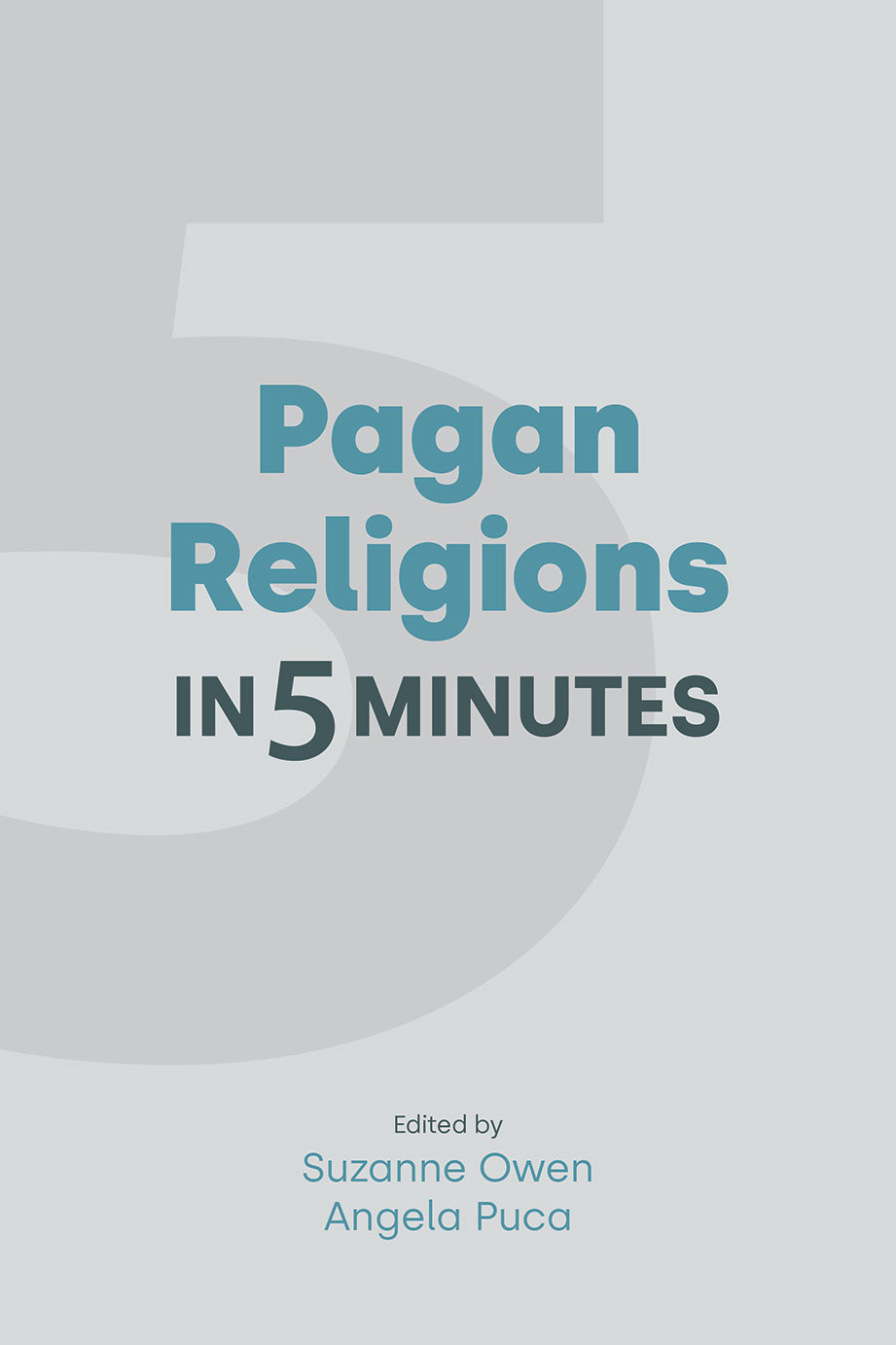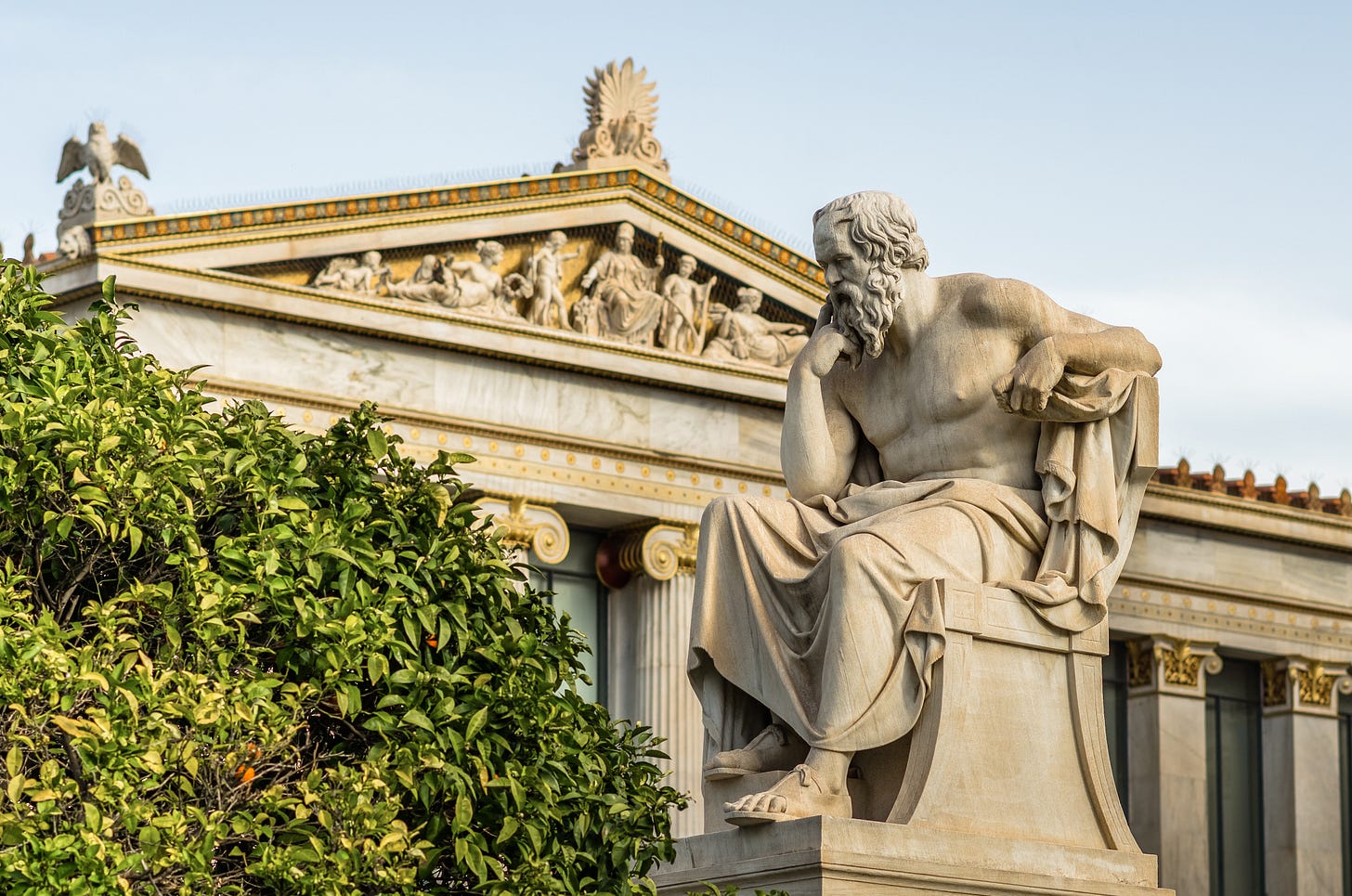We Aren't Pagan
The Greek Rejection of the "Pagan" Identity
Although I've previously shared this news on social media, this is my first mention on Substack: I have been invited to contribute a chapter to an upcoming book titled “Pagan Religions in Five Minutes,” published by Equinox Publishing. This book, edited by Dr. Suzanne Owen and Dr. Angela Puca of Leeds Trinity University, is a compilation of concise yet insightful essays exploring various facets of Pagan identities and practices, both historical and contemporary. It examines different Pagan traditions, such as Druidry, Wicca, Heathenry, and others, addressing a broad spectrum of questions. These range from Pagan beliefs to the legitimacy of Paganism as a religion, Pagan celebrations, the rationale behind different spellings of 'Pagan,' the presence of sacred texts in Paganism, and Druidry's status as Europe's indigenous religion, among others.
Authored by field experts, each essay in the book provides brief, clear responses and suggests further reading materials. This makes the book an excellent introductory resource for those new to the subject and a valuable educational tool, with each chapter designed for a quick five-minute read. It is ideal for readers seeking to expand their understanding of Paganism and for use in educational settings as a supplementary resource.
I am honored to have been invited to write a chapter on a passionate topic: the Greek rejection of the Pagan identity. My chapter, titled “Why do some Polytheists reject the term Pagan?” explores the humorous irony of contributing to a Pagan book while explaining why Greeks aren’t Pagans and should not be categorized as such, particularly in academic fields like Pagan Studies. I am grateful for the editors' openness to include a Greek perspective in the discussion.
While I will not go over in detail my objections to the term Pagan in this post, in short, my arguments in the essay rest on two points: (1) the historical context of the term 'pagan' as it originated in Late Antiquity and its relationship to Greeks, and (2) the differences in identity structures between Greeks and Pagans. While there is much more to discuss, I believe these two aspects provide a fitting introduction to why Greeks reject 'Pagan' as an identity and why it is an inappropriate category for understanding us.
In this post, I want to expand on those two points in a different way than my essay does. The one thing I will carry over from the essay into this post is the point that there is a difference between 'pagan' and 'Pagan.' The former, a Christian creation, delineated the boundaries of Christian identity. The latter, Pagan, transformed a Christian slur into a claimed religious identity, merging various traditions and movements under a single umbrella. While this grouping may be suitable for some, I find it inappropriate to apply this label to Greeks, forcing us into a category that does not accurately represent our history, identity, and aspirations. While I cannot speak for other polytheistic communities, I observe that the Greek approach is distinctly different, rooted in a unique history that shows our aspirations for Re-Hellenization are not a novel concept but rather a continuation of the aspirations from the Greek Independence from the Ottoman Empire and the visions of Georgios Gemistos Plethon (1355-1453) and earlier humanists in the Christian Roman Empire (commonly known as Byzantium).
Despite Orthodoxy being a mainstay in Greece today, the country's initial formation aimed to be secular. It was surprising to learn that in the early developmental years of Greece, numerous churches were demolished, a notion almost inconceivable to many Greeks today. This leads to the question: had secularism gained a stronger foothold later in the country's history, might our polytheism have resurfaced sooner?
Today's Re-Hellenization efforts are not unprecedented. We are continuing where Georgios Gemistos Plethon left off in the 15th century. Plethon, a philosopher, scholar, and a key advocate of Neoplatonism attempted to revive the worship of the Greek Gods in his unique way. He was not just a religious reformer but also a political visionary, foreshadowing the modern Greek state, as some scholars suggest.
Re-Hellenization aims, in brief, to undo centuries of Roman and Orthodox Christian influence and restore a Hellenic identity, encompassing the revival of Hellenic Religion and other aspects of Hellenic identity. Historically, Greeks were once Romans. The inhabitants of the "Byzantine Empire," including those in modern-day Greece, identified themselves as "Roman" (in Greek, "Ρωμαῖοι" - Romaioi). This label persisted even after the fall of Constantinople in 1453. During the Ottoman Empire, "Romaioi" primarily described the Orthodox Christian subjects, mostly Greek-speaking. This solidified the association of Greek Orthodox Christians with Roman heritage. In contemporary times, while the term "Roman" as an identity for Greeks is less prevalent, replaced largely by the national identity of being Greek, elements of this identity endure, especially in religious and cultural contexts.
These are brief explanations. I would like to go into greater detail in future posts, but I hope what I wrote here articulates the complexity of the Greek situation, highlighting the vast differences between us and Pagans. As a community, we are endeavoring to realize the dreams of Plethon and his contemporaries from over 500 years ago, as well as those from the period of independence from the Ottomans.
I am not Pagan; I am Greek (and American). What it means to be Greek is a journey each individual must undertake. Is being Greek simply Roman by another name? Are we to worship Jesus or Dionysus? To read Plato or Paul? To choose liberal democracy or theocracy? To read Homer or the gospels? To promote reason or faith? To be initiated into Mysteries as conscious adults or baptized as non-consenting infants?
For this and other reasons, Pagan is not appropriate for me or other Greeks. Pagan does not capture or represent our complex history and collective aspirations as a group. Pagan falls short of capturing who we are. It is vague, undefined, vaporous, and confusing of a label to be applied to the Greeks.
While we aren’t Pagan, we can still be friends :)




